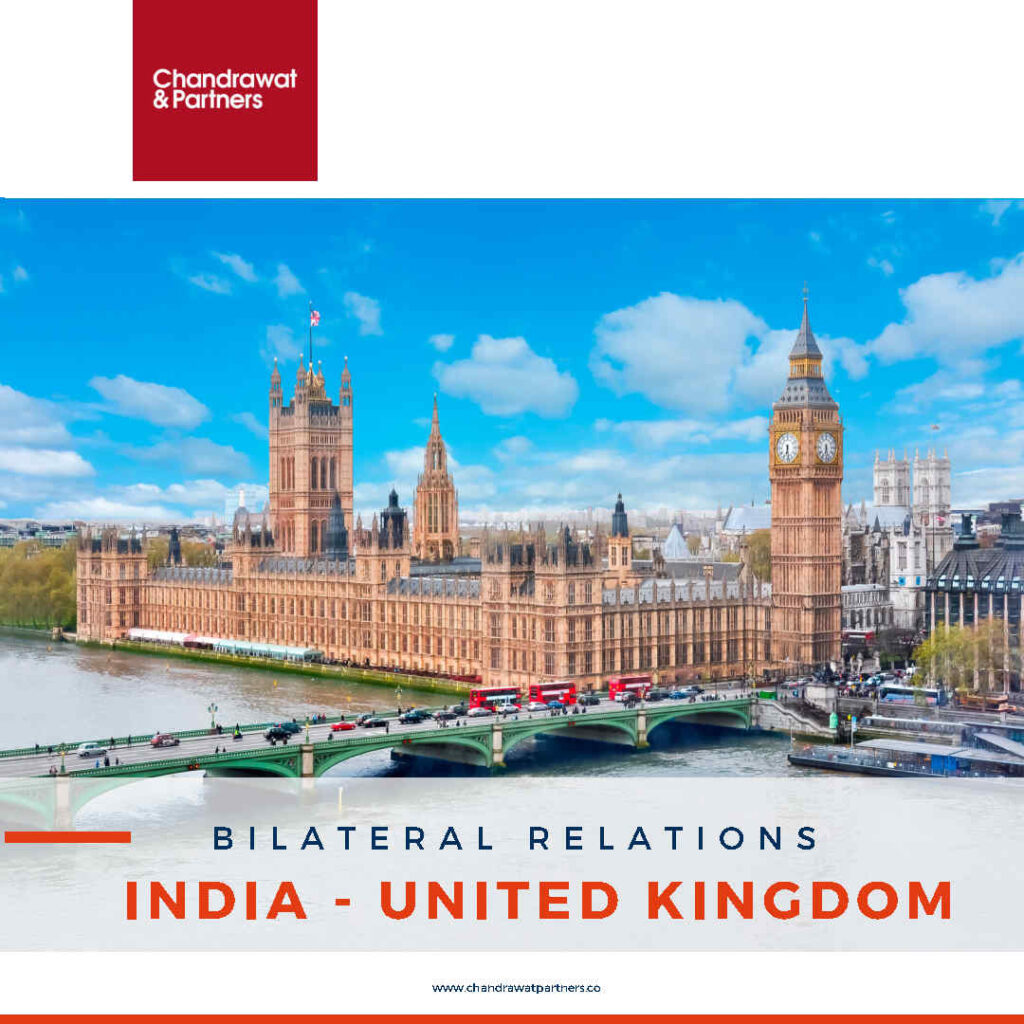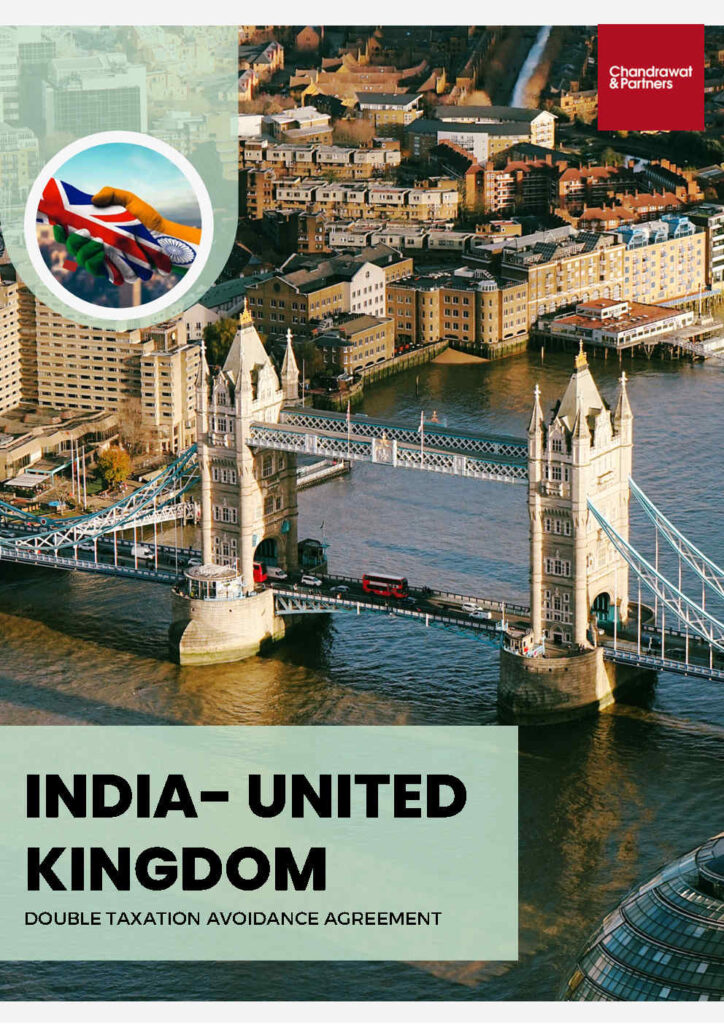We have a team of professionals to assist you with your requirements related to UK, please feel free to write us at enquiries@chandrawatpartners.com
India – United Kingdom bilateral relations
India – United Kingdom bilateral relations
Introduction
United Kingdom relations, also known as Indian–British relations or Indo–British relations, refers to international relations between India and the United Kingdom. India has a high commission in London and two consulates-general in Birmingham and Edinburgh. The United Kingdom has a high commission in New Delhi and five deputy high commissions in Mumbai, Ahmedabad, Chennai, Bangalore, Hyderabad and Kolkata. Both countries are full members of the Commonwealth of Nations.
The United Kingdom has an Indian population of over 1.5 million. Former Prime Minister of the United Kingdom David Cameron described Indian–British relations as the “New Special Relationship” in 2010.
Economy
India is the second largest foreign investor in the UK. While UK ranks 18th as a trading partner of India and third after Mauritius and Singapore as an investor in India. There are many bilateral trade agreements between the two nations designed to strengthen ties. For example, in 2005, the Joint Economic and Trade Committee (JETCO) was inaugurated in New Delhi aimed at boosting two-way bilateral investments.
The growth of India’s multinational companies contributed greatly to UK’s business and economy. As of 2019, Indian companies in the UK generated over 48 billion pounds. Also, they have employed more than 105,000 people in the UK.
The British government has chosen India as one of its most influential trade partners because it is one of the “fastest growing economies in the world.” In 2013, Cameron formed the biggest trade delegation by accommodating more than 100 representatives that varied from multinational corporations, medium-to- small-sized corporations, and universities to India.
Compared to the 2010 trade mission, the UK and India negotiated to double the trade volume by 2015. Following the trade delegations, total UK goods and service exports to India increased by 14% from January to September 2013. Between 6 and 8 November 2016, then British PM Theresa May visited India for a bilateral trip. The key topic of discussions would be May’s plan for post-Brexit relations with India. Discussion on a possible free-trade agreement was also in the agenda.
According to a MEA (Ministry of External Affairs, India) spokesperson, there is a “substantial scope for further strengthening bilateral cooperation across a range of sectors, including science & technology, finance, trade & investment, and defence & security.”
Following a meeting between Finance Minister Arun Jaitley and Chancellor of the Exchequer Philip Hammond at the 9th UK-India economic and financial dialogue, Jaitley announced that the two countries had agreed to discuss a bilateral free trade agreement. However, Jaitley stated that a formal dialogue on the agreement would only begin post-Brexit.
In September 2017 the High Commission of India in the UK, with the support of the UK India Business Council, announced the Access India programme, a unique scheme set up to help many more UK SMEs export to India. Whilst many large UK companies have a presence in India, small and medium-sized British companies do not. India hopes that the Access to India programme will not only encourage British SMEs to export to India but also inspire them to manufacture in India fulfilling the aims of the Make in India initiative.


To know more about bilateral relations between India and UK, please download our booklet.
To know more about India – UK, DTAA, please download our guide.
Contact Us
Get in touch with the right people to get the right help at the right time.
Contact us at: enquiries@chandrawatpartners.com



